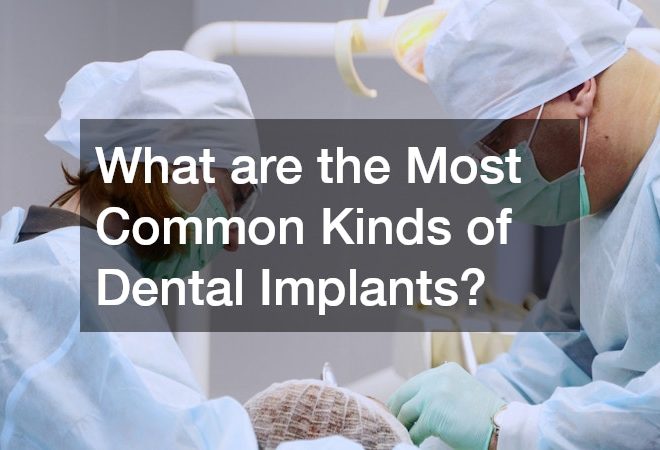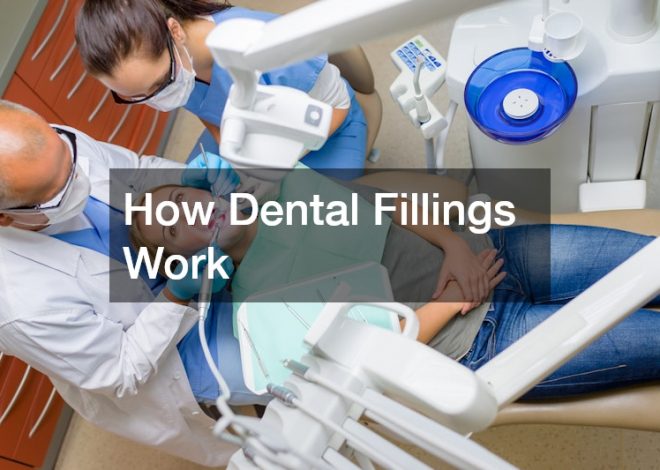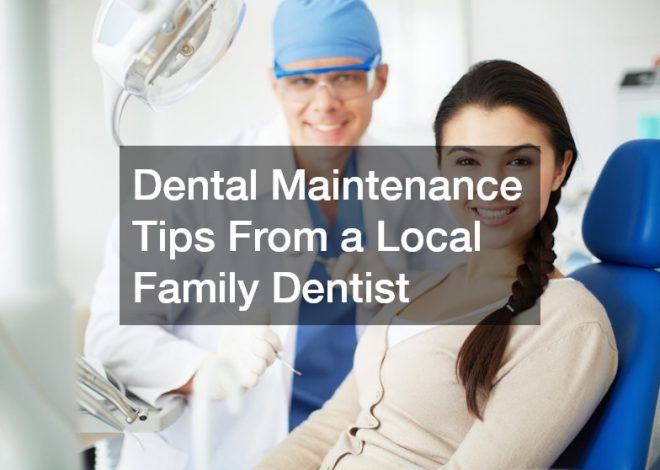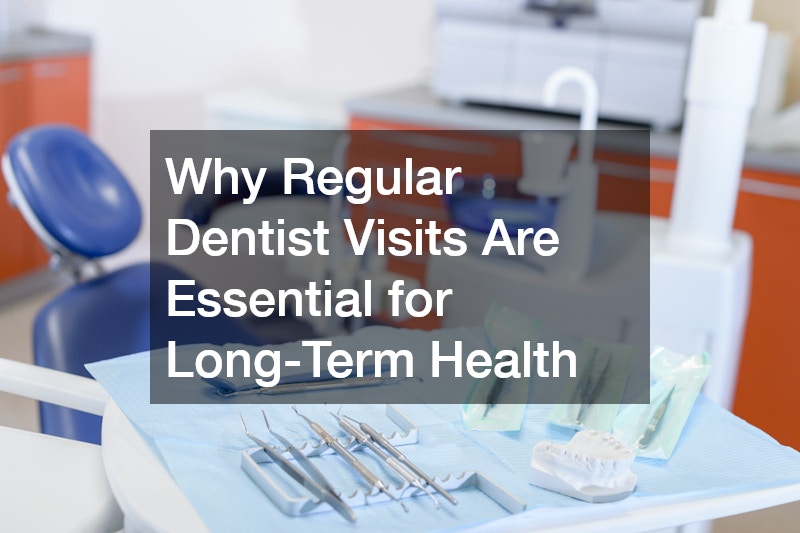
Why Regular Dentist Visits Are Essential for Long-Term Health

Most people think of the dentist as someone to visit when they have a toothache or need a cleaning. But did you know that your local dentist plays a critical role in maintaining not just your smile—but your overall health too? From detecting early signs of systemic diseases to helping manage complications of conditions like diabetes and cancer treatment, regular visits to the dental office are far more important than many people realize.
Skipping dental checkups may save time or money in the short term, but it can lead to far greater health complications—and expenses—down the road. In this comprehensive guide, we’ll explore why routine dental care is vital, what to expect at a visit, and how seemingly unrelated areas like financial service, restaurant habits, or even local acupuncture may tie into your oral health routine.
The Connection Between Oral Health and Overall Health
Your mouth is more than just the start of your digestive system—it’s also a window into the health of your entire body. Medical research has repeatedly shown a link between oral diseases and chronic health conditions such as heart disease, diabetes, respiratory infections, complications during pregnancy, and certain types of cancer. These associations underscore the necessity for regular visits to the dentist.
For instance, inflammation from gum disease can contribute to clogged arteries, increasing the risk of heart disease. And for those undergoing cancer treatment, maintaining good oral hygiene can reduce the risk of oral infections when the immune system is compromised. This makes having a local dentist who you regularly visit more vital than you might initially think.
A local dentist can often detect the first signs of these issues during a routine exam, enabling early treatment and potentially better health outcomes. This makes the dental office a crucial part of your health monitoring plan. By understanding the links between dental and general health, you empower yourself to make more informed health decisions.
Early Detection of Serious Health Problems
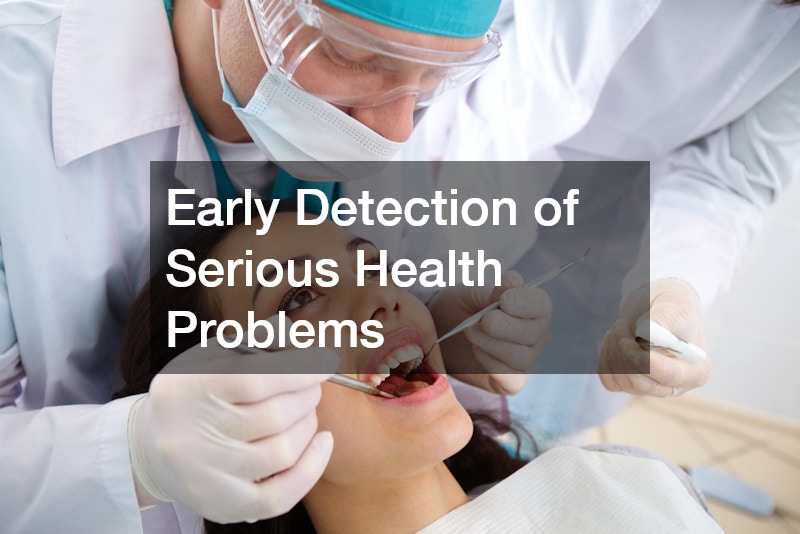
A dentist does more than clean your teeth and polish your smile. During regular checkups, they examine your mouth, tongue, and throat for signs of oral cancer, check your jaw alignment and bite—which can impact your sleep and digestion—and spot signs of vitamin deficiencies or anemia. These screenings are vital for early detection of more severe conditions.
Regular dental visits can help diagnose oral symptoms of conditions like diabetes, HIV/AIDS, or acid reflux. This makes your dental office a critical point of contact in your overall wellness plan. The role of the dentist here is becoming increasingly recognized as integral not just for oral health but for early detection of chronic diseases.
If you’re undergoing cancer treatment, for example, your dentist can help manage symptoms like dry mouth, mouth sores, and weakened enamel—minimizing discomfort and reducing risks of secondary infections. Such collaborative care can significantly improve health outcomes and quality of life during challenging treatments.
Preventing Tooth Decay and Gum Disease
The cornerstone of any dental visit is preventive care. Cavities and gum disease are extremely common—affecting millions of adults and children worldwide. However, both are largely preventable with proper oral hygiene, the use of quality dental supplies like fluoride toothpaste and floss, and bi-annual cleanings and exams.
Your local dentist can remove hardened plaque (tartar) that brushing can’t eliminate. They’ll also check for signs of gingivitis or periodontal disease and recommend early interventions before the damage becomes irreversible. With their guidance, maintaining oral health can become a manageable part of your daily routine.
If you’ve been skipping visits to the dentist, it’s easy for these silent problems to build up—leading to tooth loss, bone deterioration, and even chronic pain. Regular checkups not only help prevent these issues but also help preserve overall oral functionality and health.
Financial Benefits of Preventive Dental Care
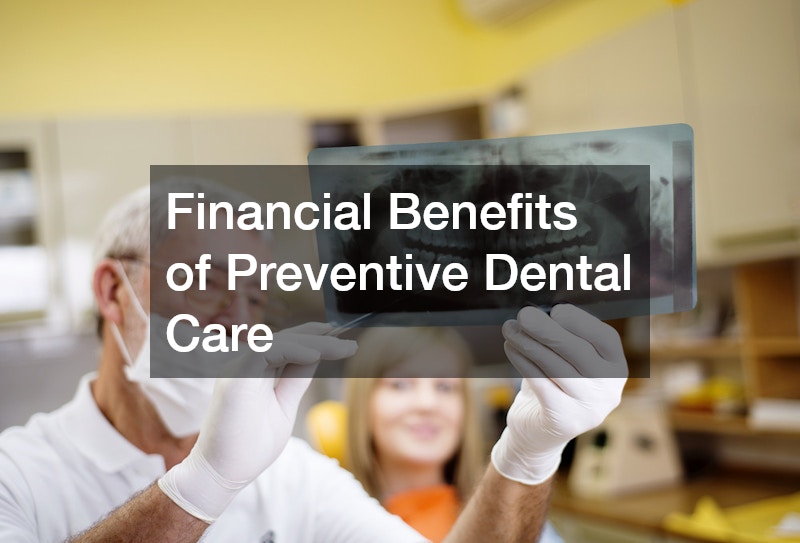
Many people delay dental care due to cost. But ironically, avoiding the dentist often results in much larger expenses. Routine cleanings and early fillings are significantly cheaper than more invasive procedures such as root canals, tooth extractions, dental implants, and reconstructive jaw surgery.
Some financial service providers offer dental-specific savings accounts or health spending cards to help offset costs. Inquire with your insurance company or local clinic to see if these services are available. Managing the cost of routine dental care is often more feasible than dealing with the consequences of long-term neglect that could result in multiple expensive treatments.
Ultimately, investing in preventive dental care with your dentist yields not just financial benefits but a healthier, more confident you. Engaging with these preventive measures early can save you significant financial stress in the future and lead to better oral health outcomes.
Support During Major Health Events
When undergoing a serious medical procedure—such as cancer treatment, surgery, or certain medications—oral health often becomes even more critical. Treatments like chemotherapy and radiation can reduce saliva production, weaken your immune system, and make you more prone to mouth sores and infection.
A local dentist should be part of your health support team during such treatments. They can recommend special dental supplies and oral hygiene regimens to keep your mouth comfortable and safe. These specialized care routines can make a significant difference in managing side effects.
Additionally, some local acupuncture practitioners work in tandem with dentists to alleviate jaw pain (TMJ), reduce anxiety around dental visits, and relieve dry mouth side effects. This integrated approach can offer additional comfort and stress relief, contributing to an improved overall treatment experience.
Maintaining Function and Quality of Life
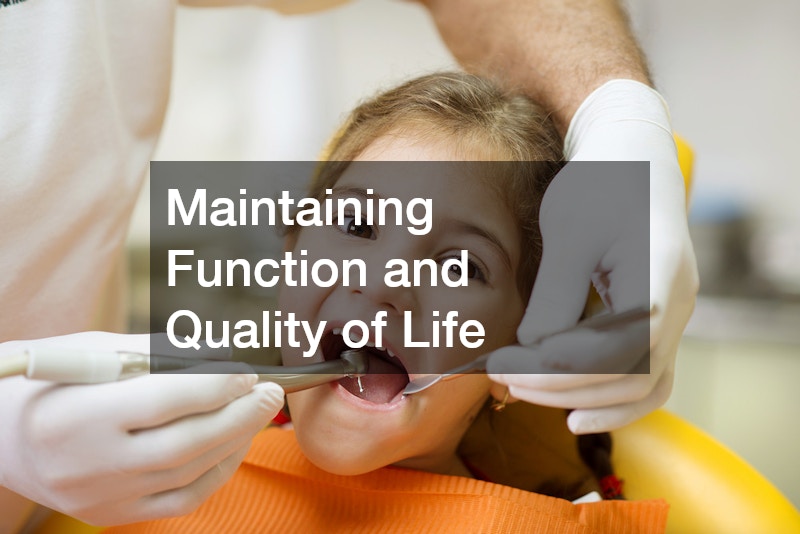
Oral health affects your daily life in ways many people take for granted. If you’ve ever had a severe toothache, you know how quickly it can disrupt eating habits, speech, confidence, and appearance. It can also significantly affect social interaction, making routine visits to the dentist essential for quality of life.
Imagine avoiding your favorite foods, struggling to smile for photos, or experiencing chronic jaw discomfort. Regular dental visits help maintain both the aesthetics and functionality of your mouth, so you can enjoy life fully and confidently. Addressing potential issues early prevents long-term discomfort and maintains your quality of life.
Furthermore, your dentist’s advice extends beyond the office as well. They offer personalized guidance on maintaining oral health through recommended dental supplies and best practices, ensuring your routines contribute to your overall well-being and daily experience.
Supporting Technology and Services for Modern Dental Care
Today’s dental offices are more connected and efficient than ever before. Many clinics utilize advanced telephone systems and digital check-in tools to streamline appointments, follow-ups, and emergency calls. This makes visiting the dentist a smoother, more convenient experience.
Some offices also offer tablet repairs or use tablets in-office for digital X-rays, patient forms, and education. These technological advancements contribute to more effective patient care and easier management of dental records. This transition to digital services increases efficiency and accessibility, improving the patient experience.
Keeping up with your dentist doesn’t mean dealing with long waits or paperwork anymore—modern technology has made oral care more convenient than ever. The integration of technology into dental services also means better access to information and more personalized care recommendations.
Tailored Advice for At-Home Care
Your dentist doesn’t just treat problems—they empower you to prevent them. Based on your unique dental structure, lifestyle, and medical history, your provider can recommend the best dental supplies for your needs, whether for sensitive teeth, dry mouth, or whitening, etc.
Guidance on brushing and flossing techniques, advice on mouth guards if you grind your teeth at night, and dietary recommendations for better enamel health are other examples of personalized care advice from your dentist. These personalized suggestions are crucial for maintaining long-term oral health and preventing issues.
If you live in a rural or off-grid area and rely on services like well pump services, you may be using hard water, which can affect your tooth enamel. Your dentist can recommend fluoride treatments or protective options suited for your water quality, ensuring your at-home care routine is as effective as possible.
Oral Health for All Ages
Oral health needs evolve as we age. Your local dentist is equipped to care for your teeth at every stage of life: from children who need cavity prevention and sealants, to teens requiring wisdom tooth evaluations, to adults dealing with gum disease prevention and cosmetic enhancements.
For seniors, oral health focuses on denture fittings, dry mouth management, and bone density care. This adaptability and range of services ensure that you and your family receive tailored care throughout every life stage. Dental needs may change, but the importance of routine checkups remains constant.
In families, having a trusted dental office that serves all generations creates a consistent record and builds trust—something essential for long-term health. This continuity of care is vital for maintaining health histories and developing preventive care strategies as needs evolve.
Dental Health and Mental Health
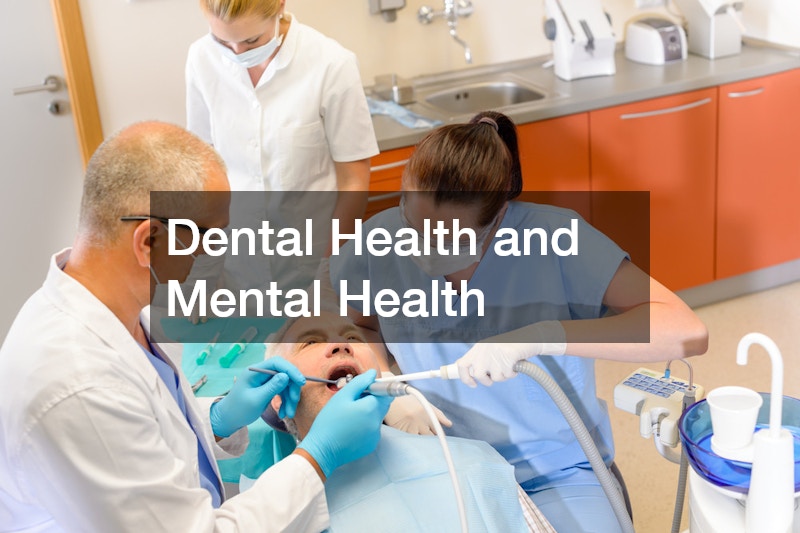
Many people don’t realize the emotional toll poor oral health can have. Missing teeth, persistent bad breath, or mouth pain can lead to low self-esteem, anxiety and depression, and even social withdrawal. This shows how integral oral health is to overall well-being.
Regular dental visits help protect not just your physical well-being but your mental and emotional health too. If dental anxiety has kept you away, consider sedation dentistry, or ask your dentist about calming approaches—some even work with local acupuncture providers for patients who prefer holistic care methods.
The intertwining of dental health and emotional health emphasizes the importance of regular dentist visits. These checkups ensure not only that your oral health is maintained but also that your confidence and social interactions are preserved, contributing to better mental health.
What to Expect at a Routine Dental Visit
For those who haven’t been to the dentist in a while, here’s what a standard visit typically includes: Medical history review, X-rays if needed, and thorough cleaning by a hygienist. These steps form the foundation of routine oral care and assessment.
Expect an oral cancer screening, gum health check, cavity inspection, and discussion on any concerns or goals during your visit. Each point addressed by the dentist during these visits helps in maintaining and improving oral health significantly.
Some offices also offer patient education via tablet interfaces, allowing you to visually understand your oral health in real time. This interactive approach can make learning and adapting to oral health strategies more engaging and effective.
The Community Role of Dental Offices
Your local dentist is more than just a service provider—they’re often active members of your community. Many clinics participate in outreach programs, sponsor school events, and provide emergency care in collaboration with other health organizations. This community engagement enhances overall well-being.
They may work alongside other community services—like financial service advisors, well pump services, or even restaurant partnerships—to promote overall wellness. Such synergy underscores the multifaceted role of dental offices in local health ecosystems.
Supporting your local dental office strengthens the health infrastructure of your area and ensures that vital care remains accessible. This support is crucial in making sure that everyone in your community has access to quality care, contributing to overall communal health.
Your Mouth Is a Gateway to Your Health
Regular dental visits are one of the most overlooked yet essential parts of long-term health. By seeing your local dentist consistently, you’re investing in early detection of life-threatening conditions, prevention of painful and expensive dental issues, and better nutrition, speech, and quality of life.
Confidence in your appearance and interactions, safe support during medical treatments like cancer treatment, and long-term financial savings through proactive care are also benefits of regular dental visits. These advantages underline the critical value of regular checkups in supporting comprehensive well-being.
Don’t wait for a toothache or emergency to make that appointment. Whether it’s been six months or six years, today is the right time to prioritize your oral health. And remember—your mouth isn’t just a set of teeth. It’s the start of your wellness journey. Let your dental office help you smile through every stage of life.
